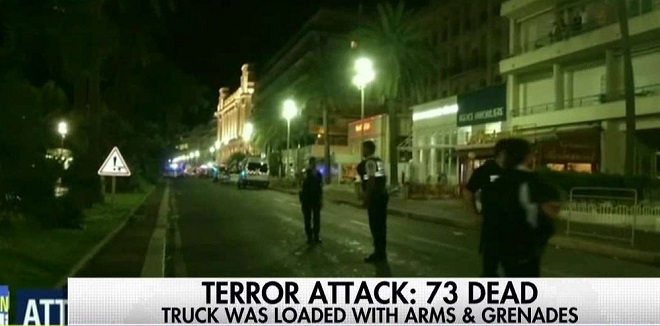
The Hague, Netherlands | AFP |
Europe is at major risk of so-called “lone-wolf” terror attacks, its policing agency said Wednesday, with the latest incidents showing “how difficult it is to detect and disrupt suspects”.
Recent incidents including Monday’s attack on a German train and last week’s carnage in Nice which left 84 people dead “remain a favoured tactic by the Islamic State group and al-Qaeda,” Europol said in a statement.
“Both groups have repeatedly called on Muslims living in western countries to perpetrate lone actor attacks in their countries of residence,” it said.
In the latest incident, the Islamic State group Tuesday released a video purportedly featuring a 17-year-old migrant who went on an axe rampage on a train at Wuerzburg in southern Germany, injuring five people, two critically.
“Although IS has claimed responsibility for the latest attacks, none… seem to have been planned, logistically supported or executed directly by IS,” Europol said,
Despite the attackers’ pledges of allegiance to the IS group, “their actual involvement… cannot be established,” Europol said.
The Hague-based policing organisation also released its 2015 “EU Terrorism and Trend Report” saying 151 people died and more than 350 others were injured in terror attacks last year in the 28-member bloc.
‘Women recruiting in Europe’
The 55-page report only looked at 2015 and did not take into account the Nice attack or the attacks on the Brussels airport and metro stations in March in which 32 people died.
“In 2015 the EU experienced a massive number of casualties caused by terrorist attacks,” Europol chief Rob Wainwright said.
“The carefully planned attacks demonstrate the elevated threat to the EU from a fanatical minority… based in the Middle East, combined with a network of people born and raised in the EU,” he said.
These people are “often radicalised within a short space of time, (and) proven willing to act as facilitators and active accomplices in terrorism,” Wainwright said.
A significant number of all foreign terrorist travellers in Syria and Iraq are now female, the report said, and women have also “proven to be very successful in facilitating and recruiting while still in the EU”.
These women are trained in the use of weapons though are probably not currently taking part in active combat, Europol added.
“Their roles may change in the future, which may have an effect on the nature and impact” of Islamic State group operations in Europe, the policing agency warned.
Last year, 687 suspects were arrested, of whom 198 were convicted of jihadist activities.
Europol warned: “It is a highly challenging task for the security services and law enforcement to prevent every terrorist attack by keeping track of the ever-increasing numbers of people suspected of being, in one way, or another sympathetic to IS ideology.”
 The Independent Uganda: You get the Truth we Pay the Price
The Independent Uganda: You get the Truth we Pay the Price





